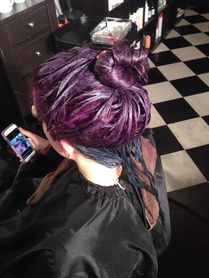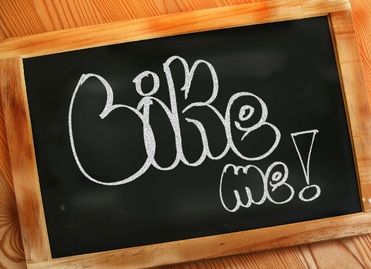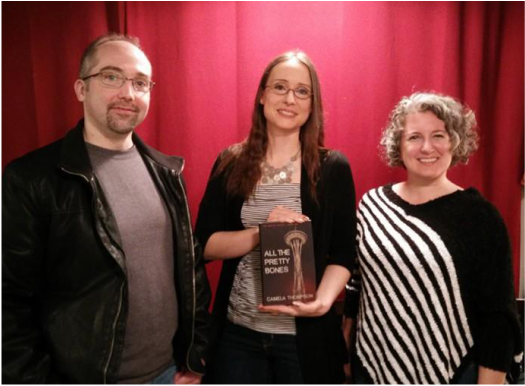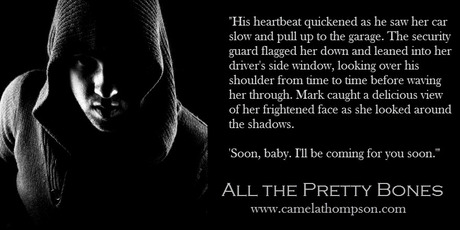|
by Camela Thompson The need for authors to establish a platform through social media is the source of much whining. I understand it. I lived it. I remember sitting in a seminar at a local writer's conference near tears because the jargon being spewed by the presenter was foreign and overwhelming in volume. She kept repeating the phrase, "You need to do this." Why was she repeating herself? Because she knew that most of us sitting in the crowd wanted nothing to do with it. We still wanted to believe that an agent would figure it all out for us. We'd hand in our manuscripts and be able to focus on the next book. Now I can laugh as I type that last sentence out. The presenter was right. Social Media is important. The reasons to avoid Social Media are numerous and often illogical. Let's look at a few of the most popular arguments: We're introverts! We don't like talking to people! Social media is the perfect way for introverts to market their book. I count myself in the introvert crowd. Conversations in person never go as I imagine them - and I imagine them again once they're done and I come up with the perfect comeback. If someone is staring me down, wit goes out the window. Somehow when my smart phone or laptop is between me and the people I'm interacting with, things get better. That and I can claim I didn't see the alert while I think of a better response. Social Media gives us the perfect opportunity to use our craft to interact with the world. It's writing! I don't have time! Puh-leaze. If you have a smart phone, you have time. Waiting for your car to be repaired? Add pins to your storyboard on Pinterest. Getting your hair cut or dyed? Participate in a Twitter chat. Standing in a ginormous Starbucks line? Tweet about it. Impossible, you say? I have literally done all of these things. Here's a picture I posted during a recent Twitter chat - and it was a fantastic springboard for a conversation with other authors: Photo taken by Hair by Summer in Seattle - she's awesome! Any time you are bored enough to get out your phone and stare at it, remind yourself to tweet, post, or pin. Especially during elevator rides and your commute on public transit if only for the material that inevitably will slide your way. Hopefully not literally. Some of those bus rides are scary.
I don't want to take time away from my writing. Sorry, this isn't valid for a few reasons. If you have a smart phone, you can be setting up your social media posts when it's not possible to write (like in line at Starbucks, waiting for your car to be fixed, getting your hair done, etc.). Even those of you who write full time cannot possibly sustain a continuous day of writing without breaks. During one of those breaks, open up Hootsuite and schedule some posts ahead of time. If you have writer's block, find pretty pictures and quotes that speak to you instead of using original content. If you have time to sit on your couch to watch television or a movie, you have time to schedule social media posts. I know, sometimes you need to have a break from anything author related. Take those breaks, but remember that thirty minutes are all it takes to schedule several posts for the week. The final reason: short posts will not leech your creativity. Why are you really avoiding Social Media? The arguments I've listed are the most common, but I don't think they are the root of the problem. I believe that the real hesitation to embrace social media is fear. Fear impacts us even when we don't acknowledge it. Some of us fear technology. This is fair, but it's something that can be overcome. I believe the real hesitation for most of us is the risk that comes with putting ourselves out there. So many questions popped into my head when I first started. How much should I share? What will I talk about? Why would anyone want to read what I have to say? Beyond my fear of insignificance was a fear of being ridiculed. Social Media is a powerful tool, and even the most well known writer can boost sales. They can destroy them too, which is a sobering thought. As we learned growing up, it's easy to say the wrong thing and be taken out of context. That doesn't mean we stopped talking. We adjusted. Apply those same lessons online. If you wouldn't say it in the office, leave it offline or accept the risk that you will start a fire. Tips to Make Things Easier Start with What You Know Do you have a personal Facebook account? Start there. You already know how to use the user interface, now it's up to you to come up with content. Not sure where to start? Follow your favorite authors and watch them for a week or two. See what generates the most comments for them and what appeals to you. Remember that established writers can break the rules. If you are just starting out and write general fiction, spouting off about politics and religion will alienate some of your potential readers. You are allowed to have your opinion, but if someone doesn't agree with you, they might not buy your book because of a topic that has absolutely nothing to do with your writing. Is it worth it? Once you're comfortable with one Social Media platform, considering adding another. Just one! Do not join them all at once. It's the quickest way to burn out. Put Pages Under Your Name Do not create pages for your book unless that is the only book you ever plan to write. You are a brand. Eventually people will look for what you write by your name. If it's under your name, you do not have to start over every time you publish. Establish Boundaries What do you want to open the door to? I've seen posts about arguments with spouses, political beliefs, and disagreements with family members. I've read touching essays about loss and grief. I've seen people bare their souls when discussing past abuse and health problems. What you discuss is between you, the people in your stories, and the world. What you put online is forever and can never be taken back. This doesn't mean you shouldn't write what is hard. Just remember that coworkers will find your work as well as family members. If that makes you uncomfortable, maybe you shouldn't hit "Publish." Proofread If you can find someone to read your post before you publish it, excellent. If not, read it out loud before publishing. Often I find that I catch more mistakes if I say the words out loud. It forces me to read each word instead of skipping over them. Scheduling posts ahead of time really helps! It gives you an opportunity to review your posts more than once before publishing. Kindness What you put out in the world comes back to you. I truly believe it. This is a small community, even more so because of Social Media. Don't badmouth others and for God's sake, DO NOT FEED THE TROLLS. Do you love or hate Social Media? Are there other tips and tools you would suggest?
4 Comments
by Camela Thompson I honestly wasn't sure where I stood on social media as an author before last week. I have been on Facebook for years to stay connected to friends and family. Obviously, there was a perceived benefit on a personal level. I like sharing photos and seeing what other people are up to. After using social media in the traditional sense for so many years, it was hard for me to understand how a small business or an author with zero connections would even get started. I'm sure I've made some mistakes, but I researched before joining. I knew to keep my profile picture consistent, develop a tag line and description, never blast direct messages, and not talk too much about my book. After months of usage, I could attribute one sale to my new Twitter account, but most of my early sales were a result of my personal Facebook friends. Not a very strong argument for dedicating hours to social media, is it?
Everything changed when I decided to put my book on sale. My publisher makes it easy for their authors to network. We have a private page where we can announce sales and new launches with requests for social media shares. When authors interact with me on Twitter or retweet my posts, I try to return the favor. I have a modest network, but there are several people I have met online who are really cool. When I had my own sale to promote, the first day I relied on paid and free promotion services. I managed to crawl up to the number 11 spot in my categories on Amazon (so cool!). It motivated me to ask my publisher network and Twitter friends to spread the word about my sale. I was surprised by the number of people who helped. My twitter notifications blew up. My sales were boosted, too. All of those months building relationships paid off. Social Media does not work if you join and only expect to post promotional material about your book. Use it to network and connect to your reader base. Participate in things like #MondayBlogs, #WWWBlogs, and other chat events on Twitter. Read other people's posts and learn what works for them. Find book clubs on Facebook for your genre and participate in conversations about books that aren't your own. Author takeovers on Facebook are a lot of fun. Attend a couple and take notes - which posts get the most interaction? The goal is to form each post with a call to action or question to get more opportunity for reader interaction. These things may not lead to immediate sales, but being kind to others and talking about similar interests lead to good things. Have you had positive interactions with readers or authors on social media? Are there things you appreciate or wish people did less as it pertains to authors? by Camela Thompson When I knew my first book was nearing its publication date, I made a decision to host a party to celebrate publishing a book rather than a traditional reading. A very small part of my motivation might have been my reluctance to talk to book stores about my first book without the ability to offer numerous reviews, but I could have gotten around that by doing the reading at a bar or coffee shop. I wanted to celebrate the achievement with my friends. For me, it was about the book, but the focus was on the accomplishment. The result was a great time, but I did learn a few lessons. My favorite picture with my wonderful editor (and talented author) Patricia D. Eddy and the hilarious Booktrope author of Zues is Dead: A Monstrously Inconvenient Adventure, Michael G Munz Scope Out the Location Before Hosting
We rented a room at a restaurant sight unseen. It turned out pretty well, but I didn't realize it wasn't wheel chair accessible until fifteen minutes before go time. The room was long and narrow and it made it a little difficult to walk around and socialize, but it worked out. Order Lots of Books I had forty people scheduled to attend, and we had about that many people pass through the event. Twenty books was not enough and I sold out quickly. It's a great problem to have, but there were a few more sales that could have been had if there were more books on hand. It was also a good thing my husband and I went into this expecting to spend way more than we could possibly generate in sales. An Open Tab Means Less or No Profit We decided to host the party at a restaurant that is known for catering to people with allergies. They specialize in Italian food and we decided to order primarily pizza, salads, and sides. We went into it knowing that we would spend far more than we would make, but we wanted a party. If you want to make a profit, hold your launch in a bar or coffee shop and do not open a tab. The tab will get you more attendees - which is good! - but it will eat into your profit margin until there is none. Bring Migraine Meds Bring all the medications, actually. Publishing a book is very stressful even if it is exciting, and stress can trigger health issues. There's also Murphy's Law to consider. If you bring your medications, you probably won't need them. Next time I will host a traditional reading, but I have zero regrets about this party. It was a tremendously good time and it was so great to see my friends. The amount of support everyone offered was amazing and I left feeling inspired to keep going. It was a truly wonderful experience. Have you attended or hosted a launch party? What did you like or not like about the event? by Camela Thompson When I first started day dreaming about publishing a book, I was under the impression that I would hand my polished manuscript to an agent and they would do the rest. That's laughable now. I hear agents are wonderful, but the author is still involved in editing and, more often than not, the burden of marketing lands on the author's shoulders. Not many authors have publishers pouring money into advertising, and it's our job to figure out how to get our book in front of the public. This is easier for authors lucky enough to have an established reader base, but us newbies have to work hard to earn every reader. I am lucky that Booktrope, my publisher, has me work with a book manager. Her efforts were instrumental in turning around an online launch that looked doomed to fail. Sometimes doing things the wrong way teaches us the biggest lessons, and I was lucky to have someone swoop in and save the day. Facebook Launch? A Facebook launch party actually occurs on Facebook, not at a physical location. People meet online at a designated time and the author posts excerpts, contests, and a lot of related content. It is a great way to reach people outside of your personal network - across the country and even internationally. Just remember to start the event from your author page (oops - you can't change this once you set it up). Join online book clubs that post launch party announcements and attend at least one before you throw your own. For more information on Facebook launches and some great advice, click here. Social Media Works. Sometimes. Social media is crucial for authors. It's a wonderful way to meet people, learn tricks of the trade, and network. I swore I would never join Twitter, and now I love it. That said, it does not generate sales. I've met a lot of authors, had some great dialogue, and laughed out loud at some pictures and quotes. I do use it from time to time to notify people that I have an event coming up and I'm not shy about retweeting flattering posts, but it didn't help me get more launch party attendees. What did work was joining Facebook book clubs that focus on my genre and allow promotional posts. I joined several groups and posted once or twice about the event with details on a contest we started a week in advance of the launch date. Teaser Graphics are Crucial The only time I did get responses to launch party announcements was when I included a graphic with a teaser quote. I followed the instructions from Page Curl (click here) and came up with a few quotes that I thought were intriguing and matched them up to graphics that matched my storyline. Contests
When you set up your online Facebook Launch page, start a contest that rewards people for inviting people to your launch. Attendees are the most important part of the party, so make the reward a good one (a free ebook and a gift card to Amazon or Starbucks is a great idea). Set up a poll in a comment and leave it open for people to add their own "answers." This will allow people to add the name of the person who invited them and vote for them. The person with the most votes by the beginning of your party wins. It also doesn't hurt to have a contest for an Amazon gift card for people who purchase the book before the launch party. It helps to have people familiar with your book when you open up dialogue in your launch party, and people have incentive to buy the book. Other contest ideas:
Plan Your Content To keep a good amount of comments and dialogue going, plan to post every fifteen minutes. Posting excerpts, photos, and other content related to your book is great, but make sure the posts are engaging and allow for continued interaction. Each time you ask a question, you open up an opportunity for readers to respond. Make sure to monitor all of the comments, respond to them, and pose thoughtful questions. Guest Authors If you know anyone who has published a book that is related to your own genre, this is a great way to get some cross promotion. They attend so their readers are invited and you have a break for an hour during the launch. Launch parties typically run at least five hours, and generating content and monitoring those comments and responses is exhausting. Scheduling guest authors is a great way to get a break. Don't know any authors? Get on Twitter and Facebook and strike up some connections! Conclusion I made some missteps and was clueless about how to get more attendees. My book manager immediately set up a contest to generate more attendees and taught me about Facebook book club groups. In four days she took my attendee count from 10 to 162, which was awesome. I believe the launch went well because we had a lot of interaction with attendees and hundreds of comments. There were some really great conversations and I had a lot of fun! It did generate a modest amount of sales, but the important thing was that it did get my name out there. For that I am grateful. Have you attended a Facebook launch you enjoyed? What did you like about it? Have you hosted a Facebook launch? What were your take aways? |
Camela ThompsonFreelance writer and Dark urban fantasy author featuring vampires with bite. My BooksCategories
All
Archives
July 2020
|




 RSS Feed
RSS Feed